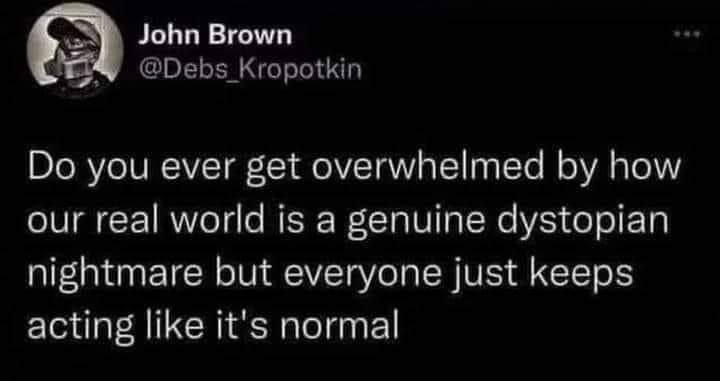this post was submitted on 13 Jun 2024
1563 points (96.4% liked)
memes
10437 readers
2484 users here now
Community rules
1. Be civil
No trolling, bigotry or other insulting / annoying behaviour
2. No politics
This is non-politics community. For political memes please go to [email protected]
3. No recent reposts
Check for reposts when posting a meme, you can only repost after 1 month
4. No bots
No bots without the express approval of the mods or the admins
5. No Spam/Ads
No advertisements or spam. This is an instance rule and the only way to live.
Sister communities
- [email protected] : Star Trek memes, chat and shitposts
- [email protected] : Lemmy Shitposts, anything and everything goes.
- [email protected] : Linux themed memes
- [email protected] : for those who love comic stories.
founded 1 year ago
MODERATORS
you are viewing a single comment's thread
view the rest of the comments
view the rest of the comments

First, you jump to the conclusion that your mind really is a source of reality. That's a big leap, and I don't think you used Occam's razor well here. Besides, this approach is wildly oversimplified, and shouldn't be used as a proof in itself.
Second, at the time there is zero evidence of mind alteration bringing tangible change to the perceivable world. Spawn me a dragon, or teach me to spawn one, here, in this very proven plane of existence, and we'll talk.
For now, there is no evidence I actually miss out on anything.
There's evidence. It's called the placebo effect.
The placebo effect is a simple psychological phenomenon affecting only the human body itself (i.e. not bringing changes to the world outside the body itself, which is literally regulated by the nervous system), and requiring literally zero supernatural things.
It's just the interaction of the nervous system with various organs of the body. Aside from placebo and nocebo, this may also lead to psychosomatic disorder, and long-term stress wear and tear. Certain expectations or stressors influence the way organs are regulated, which may lead to positive or negative outcomes depending on the context.